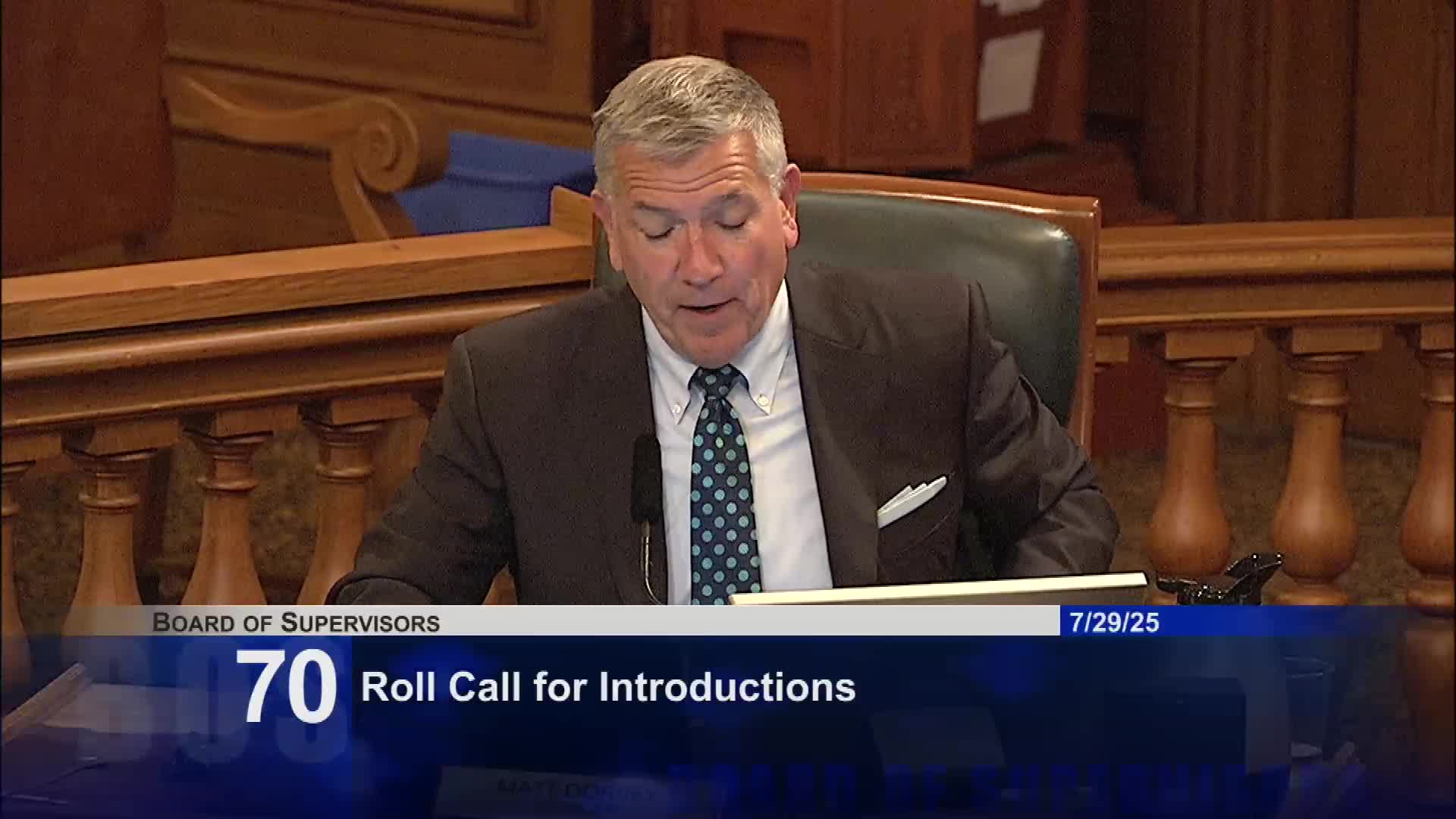San Francisco Official Requests Cost Analysis on Equal Benefits Ordinance Impact
July 29, 2025 | San Francisco County, California
This article was created by AI summarizing key points discussed. AI makes mistakes, so for full details and context, please refer to the video of the full meeting. Please report any errors so we can fix them. Report an error »

In a pivotal moment at San Francisco's city hall, a request was made to assess the financial implications of the city's equal benefits ordinance, which mandates domestic partner benefits for city contracts. This ordinance, originally designed to support LGBTQ+ equality, is now under scrutiny as same-sex marriage has been legal for nearly a decade.
The request, presented to the Budget and Legislative Analyst's Office, seeks to explore three key questions. First, it aims to determine the percentage of U.S. businesses that still provide domestic partner benefits equivalent to those offered to married couples. The second inquiry focuses on potential cost savings for San Francisco if the city were to open its $5.8 billion in taxpayer-funded contracts to all businesses, rather than the estimated 45% that currently offer such benefits. Lastly, the request calls for an accounting of the direct costs incurred by the city for enforcing compliance with the ordinance.
The speaker emphasized that while the ordinance once served a crucial purpose, the landscape has changed since the Supreme Court's 2015 ruling in Obergefell v. Hodges, which legalized same-sex marriage nationwide. The argument is that by expanding eligibility for city contracts to all businesses, San Francisco could foster greater competition and potentially save millions—up to $290 million if even a modest 5% savings were realized.
As the city grapples with these considerations, the implications of this request could reshape how taxpayer dollars are spent and challenge the relevance of existing policies in a changing social landscape. The meeting underscored the need for thoughtful deliberation before any legislative changes are made, highlighting the balance between supporting equality and ensuring fiscal responsibility.
The request, presented to the Budget and Legislative Analyst's Office, seeks to explore three key questions. First, it aims to determine the percentage of U.S. businesses that still provide domestic partner benefits equivalent to those offered to married couples. The second inquiry focuses on potential cost savings for San Francisco if the city were to open its $5.8 billion in taxpayer-funded contracts to all businesses, rather than the estimated 45% that currently offer such benefits. Lastly, the request calls for an accounting of the direct costs incurred by the city for enforcing compliance with the ordinance.
The speaker emphasized that while the ordinance once served a crucial purpose, the landscape has changed since the Supreme Court's 2015 ruling in Obergefell v. Hodges, which legalized same-sex marriage nationwide. The argument is that by expanding eligibility for city contracts to all businesses, San Francisco could foster greater competition and potentially save millions—up to $290 million if even a modest 5% savings were realized.
As the city grapples with these considerations, the implications of this request could reshape how taxpayer dollars are spent and challenge the relevance of existing policies in a changing social landscape. The meeting underscored the need for thoughtful deliberation before any legislative changes are made, highlighting the balance between supporting equality and ensuring fiscal responsibility.
View full meeting
This article is based on a recent meeting—watch the full video and explore the complete transcript for deeper insights into the discussion.
View full meeting
